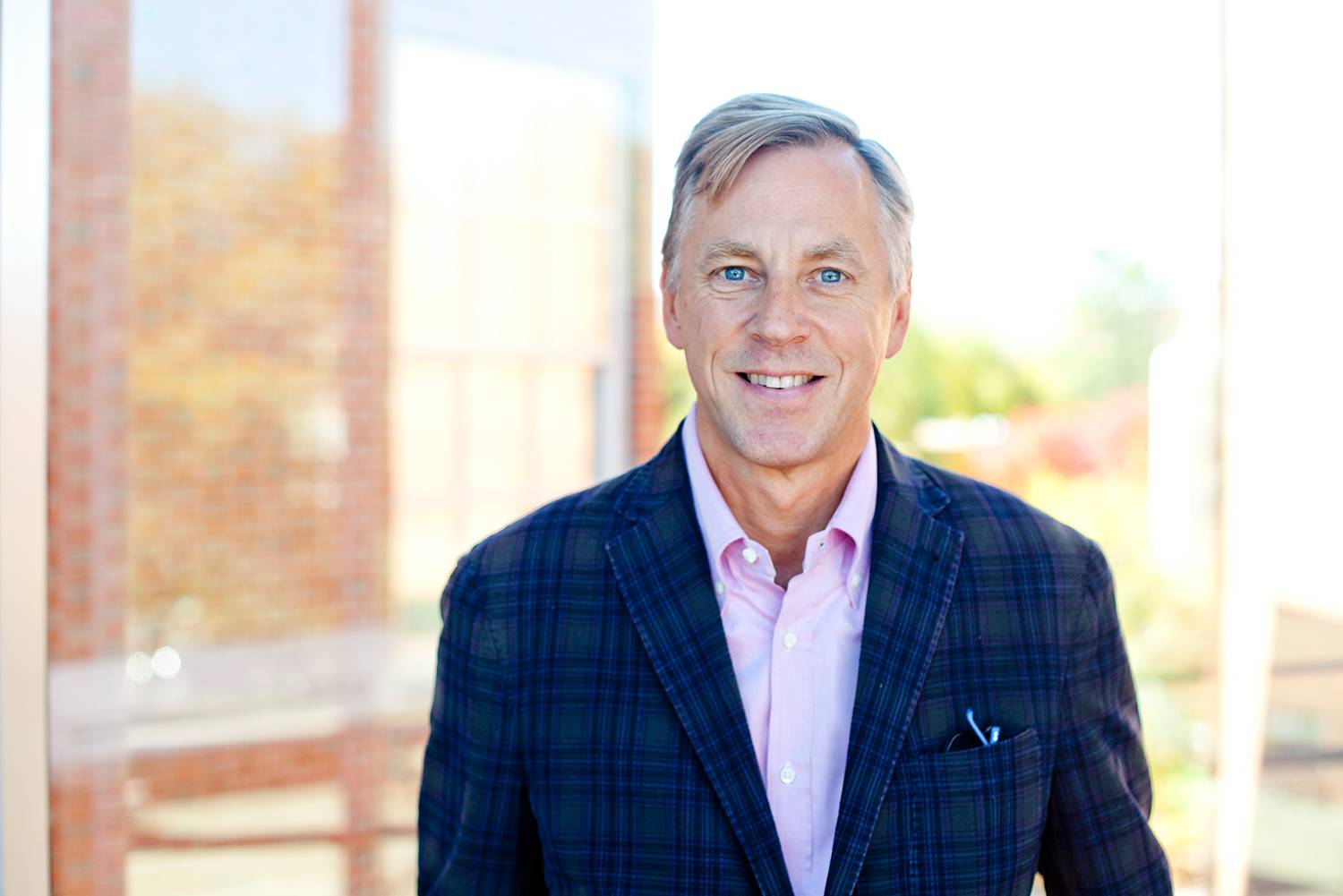Energy Gets a Boost at Tuck: Q&A with Daniel Revers T’89
The new Revers Center for Energy, made possible by Daniel Revers T'89, expands Tuck’s energy programming in the classroom and beyond.

The new Revers Center for Energy, made possible by Daniel Revers T'89, expands Tuck’s energy programming in the classroom and beyond.
Through a generous gift from Daniel Revers T’89, managing partner and co-founder of ArcLight Capital Partners and a member of Tuck’s board of overseers, Tuck launched the new Revers Center for Energy, established to inspire and shape tomorrow’s leaders in energy while engaging in today’s energy economy.
Revers is a long-time supporter of Tuck, providing funding to launch the Revers Energy Initiative in 2012 which endowed the Revers Professor of Business Administration, as well as funding for the Revers Board Fellows Program and a faculty fellow.
Revers visited Tuck in October and discussed how he sees energy intersecting with Tuck now and in the future.
It’s been four years since the creation of the Revers Initiative. What has changed at Tuck since then regarding energy and the curriculum?
I think there’s a lot more interest on the part of incoming students around energy. A good cohort of people are being drawn to Tuck in part because there’s an energy initiative here, a place where they can take a deeper dive into energy. That’s very gratifying. Those people get here, and they are very active about raising awareness of energy at Tuck and Dartmouth, and they are working with alumni so they know there’s a focus on energy at Tuck. In the curriculum, we’ve developed a number of cases in the core. We’ve got a couple of energy classes now too. The next step is to develop independent studies: a framework and a network for students who want to take a very deep dive in energy, and get some firsthand experience in the field.
How do you see the Revers Center working with the new Arthur L. Irving Institute for Energy and Society at Dartmouth?
As the Institute brings in more faculty and resources, we can bring more people to Tuck, people with interesting jobs and businesses, and really have Tuck be able to tie-in to the Institute’s programming. I also want the Revers Center to feed in some of the ideas we’re working on, like a mentoring program we started where students shadow someone at an energy business.
And as you get the Thayer School involved, the Center becomes a draw to campus for recruiters who may want one MBA student and some engineering students. The bigger the attraction, the more people will come, and Tuck provides an interesting forum for people to come and have students engage with them.
How has the energy industry and market changed since the Initiative was founded in 2012?
2012 to 2016 has probably been one of the most dramatic cycles in the energy complex, really led by a massive drop in commodity prices. And if you think about energy, what goes into the wellhead really drives all the downstream activities, whether its carbon-based or renewable-based. It sets the marginal cost of pricing through the entire value chain. As we’ve had this very large upset at the wellhead, a barrel of oil went from trading as high as 140 to as low as 26. It threw the industry into disarray, creating a major reconfiguration of not only the North American flow of energy products but on a global basis.
How is the Tuck curriculum preparing students for this ever-changing energy environment?
A lot of what we put together and talked about five years ago—in terms of cases and coursework—is still relevant because we’re giving students a knowledge base and a lens to understand how the energy markets work. What’s actually going on today may be very different from the cases, but it’s still understanding the global flow. Erin Mansur, the Revers Professor of Business Administration and the faculty director of the Center, is an excellent resource for students because he has his finger on the pulse of the industry and his classes can be fairly flexible and topical.
